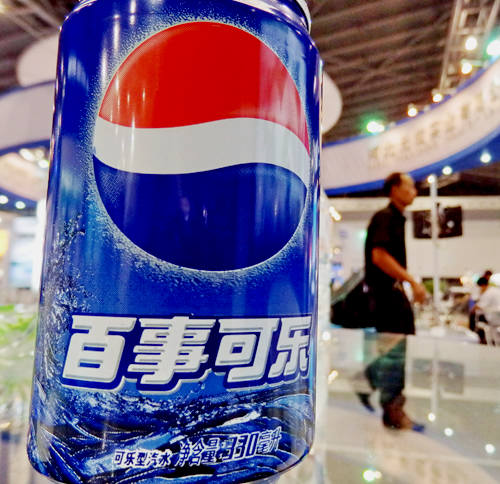|
 |
|
BEST CHOICE: PepsiCo's venture with Tingyi aims to beef up its distribution in the fast-growing Chinese market (CNSPHOTO) |
Despite its global success, PepsiCo has not been as prosperous in the Chinese market as its rival Coca-Cola. But a recent alliance may give a boost to the U.S. soft drink giant.
On November 4, China's instant noodle and beverage heavyweight Tingyi Holding Corp., a Taiwanese enterprise based in Tianjin, signed an agreement with PepsiCo Inc. to create a strategic business alliance in China. Based on the agreement, Tingyi's affiliated company, Tingyi-Asahi Beverages Holding Co. Ltd., will be appointed PepsiCo's franchise bottler in China.
For PepsiCo, its decision to team up with Tingyi came after its bottling business in China suffered losses from rising raw material costs.
"The alliance between PepsiCo and Tingyi came when PepsiCo's financial stress became even more serious after the financial crisis in 2008. It allows PepsiCo to get rid of its loss-making China bottling business and boost PepsiCo's profitability and market share in one of the world's biggest and most competitive beverage markets," said Chen Jing, an analyst of the beverage industry with Beijing Orient Agribusiness Consultant Ltd.
However, their marriage has caused a stir in the Chinese beverage market. Its business prospects have been overshadowed by an
anti-monopoly investigation, as the merger will account for 30 percent of the market share, asserting a major influence on the market.
According to industry insiders, PepsiCo and Tingyi began their contact as early as 2004. Real breakthroughs didn't develop for another seven years.
Industry observers say the tie-up marks a long-awaited foray of Tingyi into the soft drinks sector after the company obtained a significant share in China's market for instant noodles and beverages.
Tingyi hopes PepsiCo's expertise and reputation in soft drink production can help the company enrich its beverage categories and strengthen its grip of the market.
Yet other experts doubt the benefits Tingyi can get from the deal, as the transfer did not include the production of the drink's key ingredients.
"PepsiCo is the real winner of this deal. Tingyi was excellent in marketing, team and public relations which are the weak points of PepsiCo," said Lei YongJun, General Manager of Beijing Putianshengdao Branding Consulting Co. Ltd.
According to a report released by Nomura Securities, even in 2009 and 2010 when most beverage makers were making hefty profits, PepsiCo saw consecutive losses.
"There are structural problems in PepsiCo's operations in China, like high marketing expenses and mismanagement," said a report released by Nomura Securities.
Different from its longstanding rival Coco-Cola, PepsiCo choose to establish bottling companies and subsidiaries with regional enterprises rather than international conglomerates that Coco-Cola has collaborated with, such as COFCO, Swire Group and Kerry Group. Currently, PepsiCo has 24 bottlers across China.
"PepsiCo's problem is that its regional partners were not strong enough to win over regional markets," said Chen Wei, an independent analyst of the beverage industry. He attributes PepsiCo's losses in China to its loose control over its bottlers.
"Because PepsiCo does not hold stocks in most of its bottlers, its overall marketing and sales strategy can't be implemented properly," said Chen Wei.
In addition, the profit distribution between PepsiCo and its bottlers also triggered friction. The price surge of concentrate offered by PepsiCo has squeezed the meager profit margin of its bottlers.
"In the soft drink industry, the concentrate and other down stream phases took up more than 85 percent of the total profit, leaving the bottlers meager profits. The increasing price of concentrate in recent years has trapped its bottlers a tight spot," said Chen Jing, an analyst of the beverage industry with Beijing Orient Agribusiness Consultant Ltd.
ChinaBottlers Ltd., the company that oversees PepsiCo's 24 bottling factories in China, reported a loss of $220 million in the past two years.
As early as 2003, PepsiCo started a campaign to tackle the non-carbonated beverage market, foreseeing that carbonated beverages alone could not propel its future development. These efforts, however, did not pay off as expected.
| 